CEO survey 2022: Skilled labour pains, power prices and IR changes top fears for ASX execs
In The Australian’s CEO survey for 2022, the nation’s top business leaders see new challenges after a tough year.
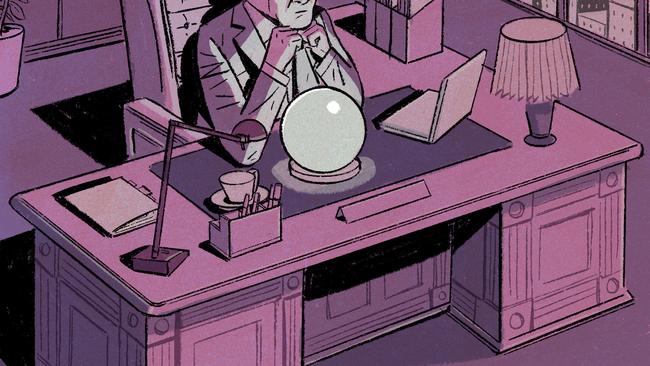
China risk barely gets a mention in The Australian’s CEO survey – this year with 90 responses from the country’s top business leaders.
An ongoing shortage in skilled workers is one issue raised repeatedly, along with surging power prices and the threat of intervention in the market by government. Also on the list of concerns: new industrial relations laws allowing multi-employer bargaining, which some say could unleash havoc.
And after a complete management capitulation to working from home, many CEOs want staff back for more days in the office, both for their own good and that of companies. Despite a tight labour market, they are not afraid to say so.
The last 12 months for Australia’s CEOs have been as challenging as the pandemic lockdowns of 2020 – probably more so.

Only a crystal ball could have predicted a war with Russia leading to a global energy crisis; runaway inflation leading to rate rises and cost-of-living pressures; a huge shift in policies from a Labor government; an elevated cybersecurity threat; and an energy transition that has put a critical minerals group into the ASX top 40.
READ THE FULL SURVEY:
AGL to Bunnings
CBA to HESTA
IAG to Nufarm
Officeworks to Sydney Airport
Tabcorp to Xero
The real risk, according to ANZ chief executive Shayne Elliott, is that this is a totally new operating environment for most businesses.
“It’s something we haven’t seen in more than 30 years and no one is used to it. We have an excess of opportunity, an excess of capital available but not enough people to do the work, and there are challenges on where they can live affordably,” he told The Australian.
Geopolitical risk was honed in on the war in Ukraine. In a marked change from last year, China featured only 12 times in 200 pages of responses to the survey – and mostly in a positive context.
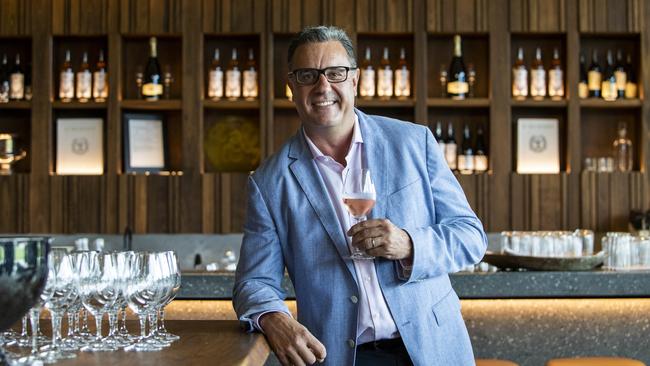
Treasury Wine Estates chief executive Tim Ford welcomed a November meetings between Anthony Albanese and Xi Jinping, while Mike Henry, chief executive of BHP, said the mining giant remained “constructive” in its outlook for the Chinese economy in the first half of 2023 as Covid-19 controls are eased and the property sector shows signs of healing.
While several leaders noted an easing of supply chain issues, there was an overwhelming call for action on skills and immigration.
Seven Group chief executive Ryan Stokes – with a workforce across manufacturing, media and resources – said a fundamental lack of skilled migration for almost five years had created a gap at a time of record low unemployment. “Our businesses are all growing and we need to expand the workforce to meet our needs,” he said.
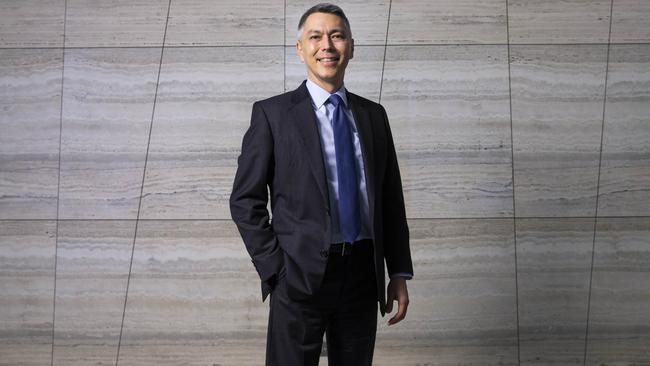
The government’s efforts to tackle the skilled immigration visa backlog were welcome, but Officeworks CEO Sarah Hunter spoke for many CEOs: labour shortages were a real risk to growth in her sector and across the economy.
“We need innovative solutions and investment into the sector which creates a strong national culture that helps attract and retain talent to the digital space. This means aligning the education sector around the future needs of industry and creating accessible pathways through education into meaningful careers,” she said.

A growing number stressed this alignment of education and future needs of industry.
WiseTech Global chief executive Richard White said the country could lead the world in STEM skills and jobs, but this would require an acceleration of technology education with business and government working together.
Crown Resorts’ Ciaran Carruthers said he had 1000 open roles. “Relying on overseas students and workers is unsustainable,” he said. “We should be starting in high schools – getting talented young people to look seriously at a career in hospitality.”
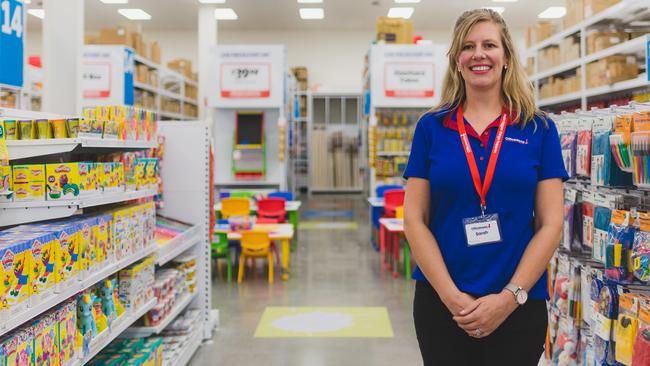
Risk is everywhere. David Neal at IFM Investors said the business calculus of long-term risk appetite and risk/return trade-offs had become far more complex.
PwC Australia’s Tom Seymour said that that complexity spells opportunity given Australia’s record as a safe and resilient jurisdiction.
Faced with Australia’s daunting task of lifting productivity from a 60-year low of 1.2 per cent, CEOs of Australia’s global champions – CSL, Cochlear and Macquarie Group – urged the government to be more competitive.
“Australia is not the only developed economy to be concerned about where its productivity growth is going to come from over the next 30 years,” CSL’s Paul Perreault said. “It is, however, one of the few not actively using market-based incentives, at both a broad and a boutique level, to fiercely compete for investments by innovation focused industries.”

Dig Howitt of Cochlear said: “Many countries compete hard for innovative companies like Cochlear that are mobile, capital-light and generate high-paying jobs.” He wants government to improve policy setting around competitive regulation, tax policy, energy and labour market flexibility.
Macquarie’s Shemara Wikramanayake pointed to the new incentives for businesses operating in the US under the Inflation Reduction Act. “Every country needs to set their own direction for how to compete in that environment,” she told The Australian.
Wesfarmers’ Rob Scott said the Inflation Reduction Act made the local tax system more uncompetitive. “We may have unique natural resources, but the tax system and challenges associated with project approvals and access to labour and skills necessary for major investment are negatives,” he said.

Mr Scott and all the big resource managers called out project delays and regulatory bottlenecks as highly damaging. After 15 years, Washington H. Soul Pattinson’s New Hope mine has finally been approved – coal that the company’s chairman, Rob Millner, said was in high demand in Asia.
Across the energy sector, business leaders warned of the consequences of ad hoc intervention in dealing with soaring home energy prices. “In the east, some voices are calling for price caps or additional taxes,” said Woodside’s Meg O’Neill. “That type of market manipulation would have serious long-term consequences, reducing investment in new supply, making the shortfall and price pressure worse in future years.”
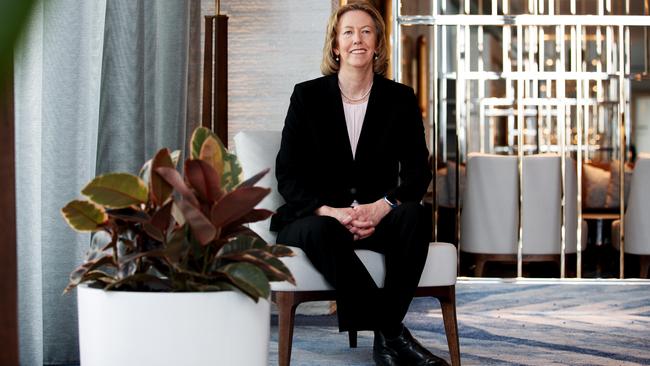
Kevin Gallagher at Santos said: “I am seriously concerned that ongoing interventions in the energy market will hurt, not help Australian consumers, and they will also drive out the foreign investment. When federal ministers tell me they don’t believe this, and they do, it makes me fearful for the future of Australian jobs, business opportunities and the living standards of our kids and grandkids.”
This year’s cyber attacks on Optus and Medibank shocked many in business. Justin Arter, chief executive at industry super fund Cbus, said no CEO was looking to the recent cases with a sense of schadenfreude. Everyone was redoubling their efforts.
On broader risks of rising inflation and interest rates, response show businesses have moved quickly to adapt to new settings. Most consumer-facing CEOs continue to see good demand.

“We’ve not seen the full inflationary effects yet, but with power and mortgage interest rates now rising, we will start to see greater impacts post-Christmas,” said Australia Post’s Paul Graham.
Commonwealth Bank’s Matt Comyn said the rise in the Reserve Bank cash rate will hit 70 per cent of household cash flows by the second quarter and 90 per cent by the end of 2023.
News Corp Australasia executive chairman Michael Miller called out the real pain felt by small businesses clients, who may need support.
“These high street businesses employ millions of Australians but are being rocked by the increase in energy prices, wages, rental costs, food, fuel and everything else that trickles down from the basics. If everything goes up 15-20 per cent, can these businesses charge 15 per cent more? I don’t think they can,” he said.
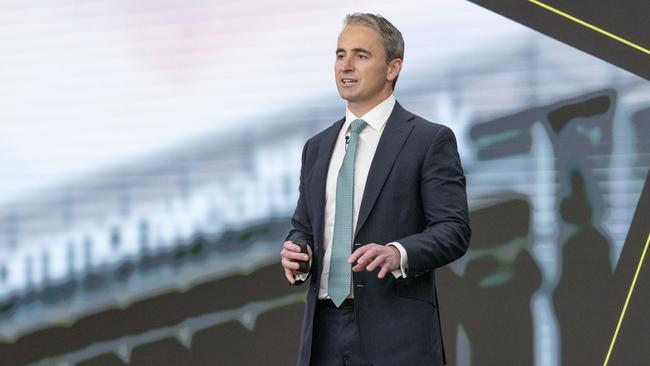
There is a distinct change in messaging by leadership on hybrid working, with many leading a return to more days in the office. Working from home may be entrenched in the system as part of the life balance reset post-Covid, but this is an important acknowledgment from the C-suite that WFH has also had a negative impact on engagement, connection and productivity.


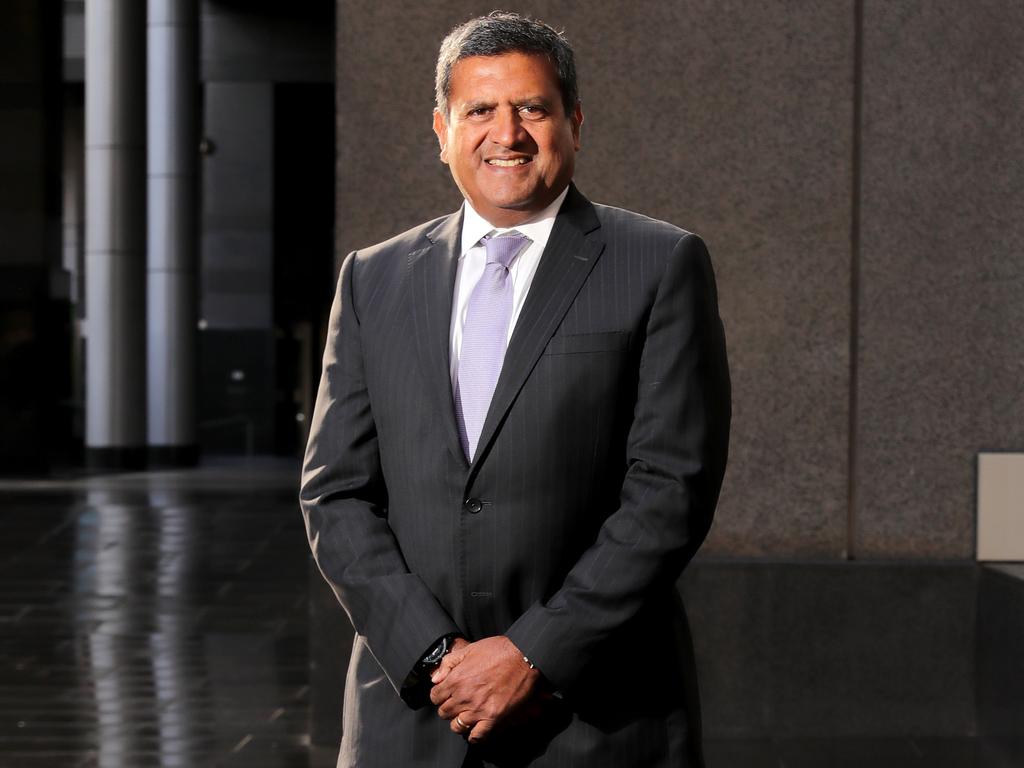
To join the conversation, please log in. Don't have an account? Register
Join the conversation, you are commenting as Logout